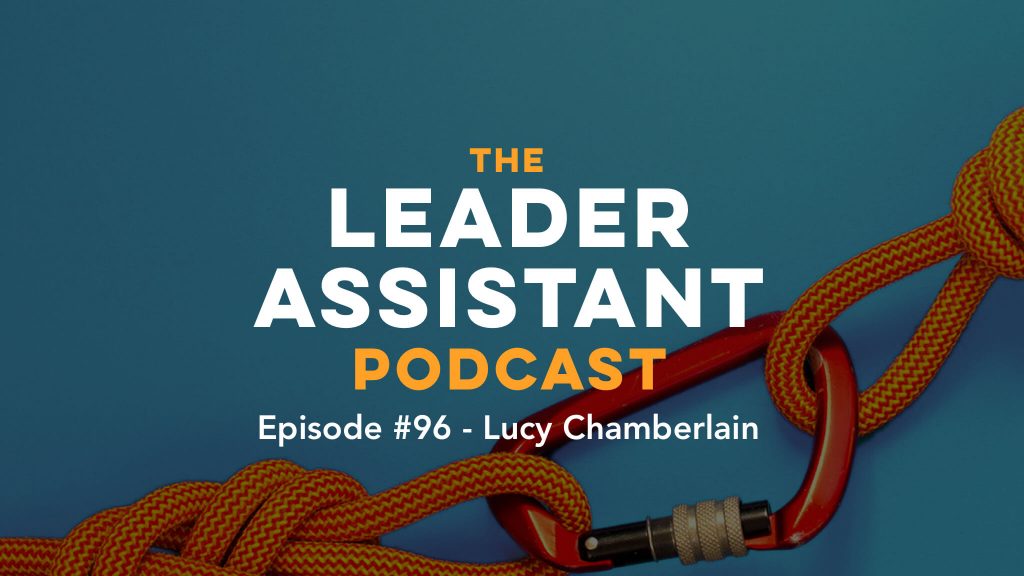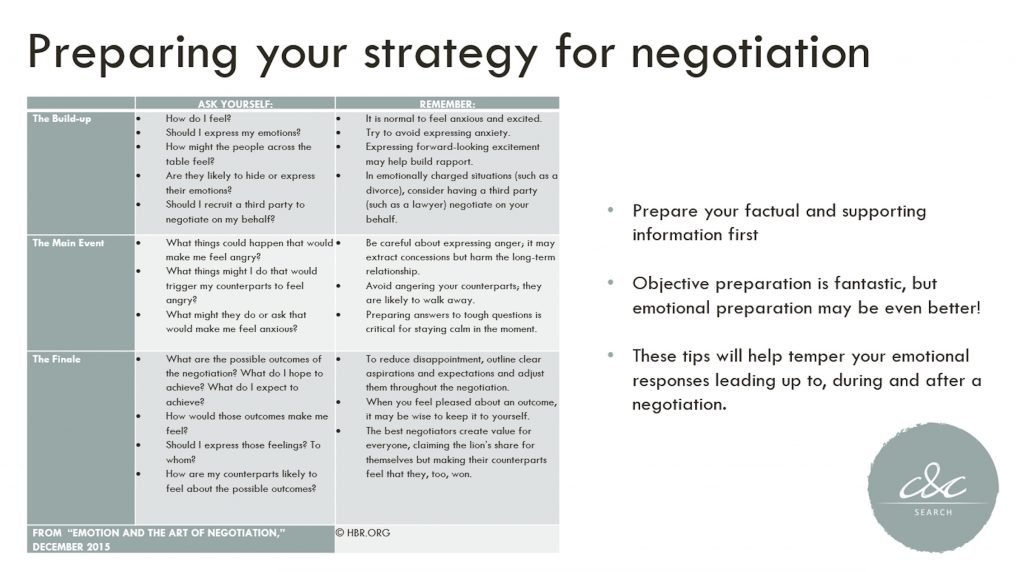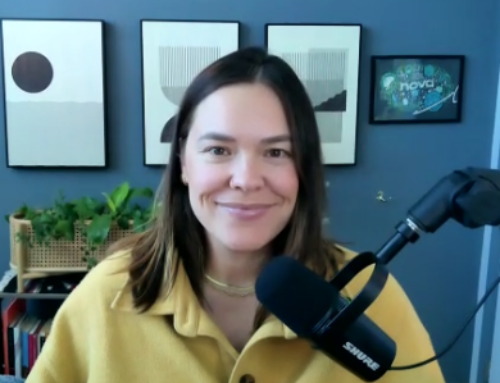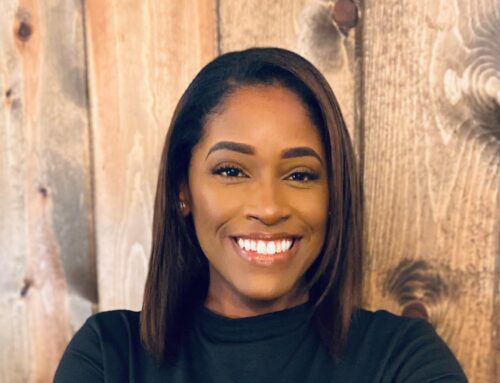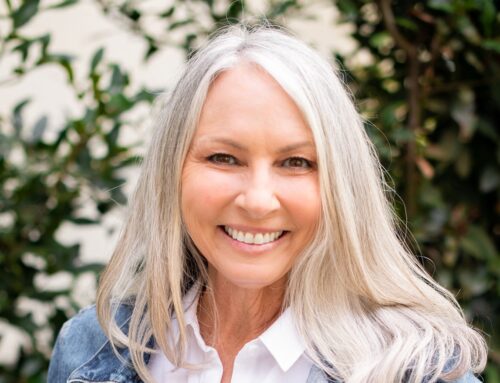Lucy Chamberlain has motivated, empowered, and armed audiences with tools to support a life and career that serves the individual and organization better.
Lucy and I had a great conversation about job hunting, networking, resumes, interviews, and negotiation. Speaking of negotiation, Lucy walks through a helpful tool for negotiating your compensation. It’s called STAR:
- Situation
- Task
- Actions
- Result
And here’s the negotiation prep sheet she refers to in the interview:
LEADERSHIP QUOTE
If your actions inspire others to dream more, learn more, do more, and become more, you are a leader.
– John Quincy Adams
THE LEADER ASSISTANT BOOK
Download the first 3 chapters of The Leader Assistant: Four Pillars of Game-Changing Assistant for FREE here or buy on Amazon here.
JOIN THE FREE COMMUNITY
Join the Leader Assistant Slack Community here, or the Facebook Group here for bonus content and to network with other assistants who are committed to becoming leaders!
CONNECT WITH LUCY
ABOUT LUCY
Award winning, passionate, fun and straight-talking, Lucy has become one of the business world’s popular motivational speakers. Lucy’s business journey as a Founder has seen her work as a TV presenter, Awards Judge and Leading Coach.
Alongside her fantastic knowledge base, Lucy’s level of experience enables her to give genuine insights into leadership, change and overcoming adversity.
With a 20-year career tracking the industry’s leading recruitment companies, Lucy founded C&C Search to redefine and elevate client and candidates’ recruitment experience.
Coming through a challenging personal time as a single mum, Lucy set out realign her career to her purpose-driven perspective, building a multi-million business that allows her rapidly expanding team to fulfill their own career goals.
A champion for women in business, Lucy and the C&C team actively collaborate with other female-led businesses. A mentor to her team, Lucy believes encouraging teams holistically, and nurturing happy, engaged, market-leading talent has the most impact on a company’s success. With a focus on social consciousness and legacy, it’s this foundation that serves to empower, captivate and delight C&C’s clients as they grow their own businesses.
As a speaker Lucy leaves an audience motivated, empowered and armed with tools to support a life and career that serves the individual and organization better.
SUBSCRIBE
Subscribe to The Leader Assistant Podcast so you don’t miss new episodes!
You can find the show on Apple Podcasts, Spotify, Google Podcasts, Pandora, and Stitcher.
Join my email list here if you want to get an email when a new episode goes live.
LEAVE A REVIEW
If you’re enjoying the podcast, please take 2 minutes to rate and review the show on Apple Podcasts here. Each review helps me stay motivated to keep the show going!
—
EPISODE TRANSCRIPT
Lucy Chamberlain 0:00
Hi, my name is Lucy Chamberlain, and I’m co founder of CNC search and today’s leadership quote comes from John Quincy Adams. If your actions inspire others to dream more, learn more, do more and become more. You are a leader.
Podcast Intro 0:21
The Leader Assistant Podcast exists to encourage and challenge assistants to become confident game changing leader assistants.
Jeremy Burrows 0:33
Hello, everyone. Thanks for tuning in to The Leader Assistant Podcast. It’s your host, Jeremy Burrows. And today I have the pleasure of speaking with Lucy Chamberlain. Lucy is the founder of CNC search. How’s it going? Lucy?
Lucy Chamberlain 0:46
It’s going great. Thank you so much for having me.
Jeremy Burrows 0:49
And what part of the world are you in today?
Lucy Chamberlain 0:51
So I am sat here in my office, which is a stone’s throw away from Liverpool Street Station, which is in the heart of the city in London.
Jeremy Burrows 1:02
Awesome. Awesome. I’m super excited to chat with you today. And we’re going to just kick things off with what was your first job? And what did you learn in that role that you still use today? Have you run a recruiting firm?
Lucy Chamberlain 1:14
Yeah, absolutely. So I graduated from university. And I started on a graduate training scheme very, very briefly, before realizing that I wasn’t going to be running hospitals, and I fell into temporary support work. So administrative work. And I was really, really fortunate I because I speak French, I was able to land a very senior role supporting the vice president of an oil and gas firm called Burlington resources. Back then, I was supporting a guy called WB Bowen. And oh, my goodness, I learned so much from that experience, I learned I wasn’t a natural pa number one. But I fell in love with the, with the profession at that time. And I think the great tools, it did teach me that I still use to this day, the ability to adapt, adapt to situations to challenges, to change to change them within both the role and in terms of the people around you and what the organization needs. So that adaptability, I think, certainly gave me a really strong foundation as I built my career. And without my PA experience, I just don’t feel I ever would have got that grounding from anything else. But I do have to say, I am just not organized enough to be an exception and executive assistant. And if you’d walked into my office at the time when I was only 22. And I had this incredible corner office. I mean, I don’t think I quite realized just how lucky I was at the time. But you would have seen papers everywhere. I was running by the seat of my pants most the time. And I think that yeah, but certainly it gave me an amazing foundation to build on.
Jeremy Burrows 3:05
So kind of tell us a little bit about your story, transitioning from that role, and then eventually running your own recruiting firm.
Lucy Chamberlain 3:13
Yeah, well, at that time, I fell in love with the PA profession. And I actually I had a very, very strong sense, even in my early 20s, that this was an unbelievably noble career path, one where you are constantly of service to others, and where your difference is an absolute game changer within a business. And I think that was really clear to me really early on. And so when I went back to a recruitment consultancy for my next assignment, and they offered me a role as a recruiter in the PA and EA support space, I knew that was the right place for me because it allowed me to bring together my passion for the PA profession, as well as my natural sales ability. And other skills that I knew would be better used in a slightly different format. And so I spent 13 years working my way up and landed at the top of my corporate career as a partner in a large firm. But I really knew that my over the last couple of years towards the end of that period of time, I had been afforded lots of amazing opportunities there. But my values were just out of alignment. And I had this calling or you know, people talk about it, but I really did have this desire and a need, I think to break out and really do something where I could put my vision to into practice and really walk my talk and I was fortunate that my brother has also had a career in recruitment And I shared my vision. And we both together wanting to to have a business where we could build a company in a culture with inclusivity at its heart, and a business that would touch pas and the A’s as well as the businesses they work for, in a really positive way. And that that was going to be our legacy was going to be raising up the profile of this incredible profession. And, and also, additionally, somewhere where my brother and I would feel really safe in the knowledge that in the future, our daughters would thrive as part of the business and and that’s what, in a nutshell, I guess gave birth to CNC search.
Jeremy Burrows 5:44
That’s great. So how long have you been running CNC search now?
Lucy Chamberlain 5:49
So we are 30 people now based in the heart of the city, and we have been going since May 2014. Yeah, yeah. Awesome. Well, congrats. Thank you.
Jeremy Burrows 6:04
So let’s talk a little bit about since you’ve been in the recruiting space for so long, let’s have you share maybe a couple of tips for assistants who are looking for a new role.
Lucy Chamberlain 6:17
Okay, so all the soul group of people I’ve ever worked with our personal assistants and executive assistants. So for 22 years, that’s been the space that I have recruited in. And for me, what is what is most obvious to me is that when you spend a career being of service to others, what can happen is you forget how to use your voice when it comes to what you need and want and what you have to offer. So my biggest tip is to do a 360 review. And what I mean about this is, I mean, taking your colleagues, your family and your social circle, and asking them, What is the magic that you bring as a person, both professionally and personally, and starting to build this really strong sense of who you are, what you have to offer, and how a new employer will benefit from that. Rather than talking just solely about how you’ve delivered in your role on a day to day basis, having a much bigger sense of the value that you add to a business. And I think for me, that’s where sometimes I see a lack of confidence, or just simply a lack of time spent on really getting to understand your perceived value from many different perspectives.
Jeremy Burrows 7:41
Yeah, I love that. It’s great advice. I like to talk about how assistants should see themselves as their executives, guide and not their executives hero. Yes. In other words, if you put your resume out there, like I’m the hero, I’ve been doing this forever, yada, yada. Versus if you put the resume out there and say I help you do this, I help you company do this, I help you accomplish your goals. It just definitely reads a lot more enticing to the executive because they’re like, Okay, this is somebody that I can partner with.
Lucy Chamberlain 8:17
Absolutely. And it gives you a much stronger platform to negotiate from, and to use as leverage for again, what you what you need and want and deserve.
Jeremy Burrows 8:27
Yeah, so let’s talk about the art of negotiation. What what do assistants need to know, when it comes to negotiating compensation packages, but even just maybe general negotiated negotiation tips for, you know, because one thing is assistants have to negotiate venues and hotels and with vendors. And so it’s not just negotiation for our compensation, but also just negotiation as a general tactic.
Lucy Chamberlain 8:57
Yeah. Oh, my goodness. It’s a big topic, isn’t it to summarize in in a short, sort of brief overview, but and it’s something actually I run webinars on and all sorts, I’ve got an amazing tool, which I’d be very willing to share with anybody if they if they would like, which gives a really wonderful guide to negotiating and gives us really strong structure for that. But in brief now, the main thing for me is that is not fearing the negotiation conversation and understanding that it is simply a conversation, and one that we can practice and get good at a bit like using a muscle you just have to use it more often and underpin it with great tools. I think it’s it’s instead of going in purely thinking about what you need and want from that conversation station. It’s looking at both sides. So for me, I want to really think about the other person on the other side of the negotiating table. What could trigger them what The likely reaction is how I head off objections how I demonstrate the value in what I’m offering, and thus, what’s justified in terms of what I’m asking for, it’s ensuring that there’s a win win. That, to me is the most important thing is it’s looking at it from a perspective of how do we both come out of this negotiation conversation better off. And I think that that’s really, really critical. It’s learning how to manage your own emotions as well. So for me, when I’m looking at having that kind of conversation, I look at the things that might trigger me. So what might be said that might either know, make me feel upset or angry or frustrated, and I had those off. So what am I going to do if x says this, or presents y, or whatever it may be, because that allows me to really focus on the win win. And it allows me to really effectively manage my emotions, because unfortunately, when emotions start coming to the fore in negotiation, it tends to put us into a weaker negotiating position. And so it’s, it’s, for me, it’s, it’s management of emotion, it’s going in with a strong business case, it’s really understanding the person opposite me. And it’s looking at the best win win. And finally, it’s making sure that you leave these conversations open. So I know from the training and the reading that I’ve done that, and from putting into practice that actually even if the, if at the end of the negotiation conversation, if the outcome in that moment isn’t what you need, it doesn’t mean it’s finite, especially if you’re just simply able to express disappointment. But let them know the conversation is still open. Because often times if somebody else isn’t as equipped at managing their emotion, they may leave that negotiation conversation, and think on it, and understand where your disappointment was coming from. And it leaves them room to come back in. And renegotiate, and again, that helps you get to that win win scenario.
Jeremy Burrows 12:15
Those are great tips. Yeah. Awesome. The Win Win is big. Because if they feel like they’re winning, too, then it doesn’t feel like a negotiation. Like you said, it’s a conversation.
Lucy Chamberlain 12:24
Exactly, exactly. And one that can be embraced and where both parties can come closer together, rather than further apart.
Jeremy Burrows 12:33
Awesome. So let’s shift gears a little bit and talk about personal brand, because that’s kind of related to negotiating and trying to get a job and just kind of establishing your own personal brand as a PA or an EA, do you have any tips for assistants who haven’t really thought about their personal brand or want to improve? Yeah,
Lucy Chamberlain 12:53
yes, I do. So for me, your personal brand comes from really understanding yourself, number one. And so an exercise that I took part in and what I now ask, all the PAs that I’m working with on personal branding to undertake is to start with understanding their own value system. So what is really important, absolutely non negotiable for them. Because from operating from our values, in terms of everything that we put out there into the world, whether it’s online or a blog, or anything else, if it’s aligned with our values, it will always feel authentic. The second thing is to really understand and it’s back to what we were discussing earlier, but who we are, and what makes us unique. And so I an exercise that I had this fantastic coach, and to take with me was to write your name in the middle of a heart and, and then write 20 things around that, around that heart that that represents who you are uniquely to you. So it might be things like I bake a mean, chocolate cake, I can scuba dive, I can speak two languages, I love reading, thrillers, it could be anything that’s really you. Because often we don’t know exactly what we represent. And then from there, it’s it’s about being of service and adding value. So when I’m looking at pas for, for example, I would encourage those pas once they really get to know what they represent and their value system is to look at how they can add value to the profession. So what skills they have what knowledge base, they’d like to share what situations they’ve experienced, that could be of benefit to others in terms of the tools that they’ve developed as a result, and then ensuring that there’s consistency and how they then express those or that information to the world. And not everybody wants to be a blogger. But actually we do all now need to think of ourselves as a company of one where you are the most important employee and how we are perceived professionally is so much around what we put out there on social media or how we represent ourselves on LinkedIn or or whatever it may be. But I think we have a responsibility as pas and EAS or for me as a representative of that community, to jointly be really pressing the the agenda about standing up for recognition, both in terms of training and development, in terms of compensation, in terms of our impact in businesses, and to do that our personal branding, and what we’re putting out there in the world will only support that greater mission for the profession.
Jeremy Burrows 15:50
Yeah. So what about interviews? So when an assistant goes into an interview, could you share maybe a couple of questions that you like to ask or that you see, or clients like to ask? And then maybe a tip for assistants? And how to best prepare for interviews?
Lucy Chamberlain 16:08
Yeah, absolutely. So I think now more and more people are moving towards more behavioral interview questions, which is certainly what they should be moving towards. I think questions like, tell me about yourself are really dated and don’t really add a huge amount of value. I love asking impact related behavioral questions. And I think that questions to me, like, tell me a time when you’ve needed to motivate a co worker, are so fantastic. And what interviewers are looking for is the star response. So s the situation, what happened, what was happening T the task, a the action, and, and then the R is the result. And if you are able to frame your answers using the star response, it’s such a powerful tool to use to be able to succinctly get your point across, but also demonstrate how you’ve been able to positively impact a situation. And it gives the interviewer the chance to really understand how your past behaviors are going to most likely be replicated within their business. And so I encourage everybody that I have going out to our clients for interview to really practice the star response for likely behavioral questions.
Jeremy Burrows 17:39
That’s really interesting. Could you could you say the acronym again, what what was the
Lucy Chamberlain 17:43
Yeah, so it’s star. And that’s s for the situation that you encountered. The T is for the task. So this is the the, I guess the aspects of that situation that you would then took on the A is for the actions that you took, and the R is the result of those actions, and the overall outcome?
Jeremy Burrows 18:06
Perfect. Yeah, I’ll I’ll definitely kind of summarize that in the show notes. So people can
Lucy Chamberlain 18:10
test it from testing. It’s great.
Jeremy Burrows 18:14
What, what do you have? Like, what are your tips on networking? And how would you encourage assistants to get out there and network and find community?
Lucy Chamberlain 18:25
Oh, absolutely. I mean, you guys across the pond are a lot better at networking. Have you ever been to British networking event?
Jeremy Burrows 18:33
I have not. I have one next month, you
Lucy Chamberlain 18:37
will, you’ll notice a big difference. I mean, we are awkward inhibited, we find it much more difficult. I’ve been to all the really international networking events I go to you, Americans are always the best in the room at creating natural connection. But for me, the most important aspect of networking is that you every event you go to, you don’t need to connect with a million people. It’s about making an authentic connection with a couple of people. And so when I’m at a networking event, I will try and introduce myself with a deep breath. And I go in and I asked to join groups of people, Hey, can I join you? And I really make the effort to get to know them more than just those surface level questions. So I try and prepare some interesting questions before I go to an event where it’s going to offer the opportunity for a conversation rather than a yes or no answer. And when I find a couple of people at an event, I can make a proper connection with i My job is done. And that is the best outcome I think you can get from any networking event. But the other thing that I would encourage all gays needs to do is is once you are attending networking events on a regular basis and there are so many you’ll find In the more Facebook groups, LinkedIn communities, online forums, and is to then be a super connector. So the biggest impact I think I see amongst the PA community is one that they decide to fully commit to that peer community by attending these networking events. And it’s amazing to see what comes out of them. But also people that connect other people tend to be the people that grabbed everyone else gravitates towards. And what I mean by that is, it’s looking at how we can collaborate as often as possible by putting people together over coffee or over email that could also benefit from knowing one another. And then you develop this, oh, you know, they say, your network is your net worth. And I think that I have certainly seen that in building this business. And I, we run PTA events here monthly. And the community aspect of being part of a tribe is really important. And the benefit, I think, to networking with pas outside of your organization, is the enriching effect it has on your on the tools that you have on your ability to face situations, or perhaps if your business suddenly making redundancies, you’ve got a whole community community out there that straightaway will support you rather than trying to do things on your own, which we all know is so much more difficult.
Jeremy Burrows 21:24
What are one of the questions that you go into those groups of people and ask?
Lucy Chamberlain 21:31
Yeah, so I think often I will share my why. So my objective for coming to the network? And then I will ask them very simply, I’d love to know what your objective for coming here today is? Because it’s it’s an open question, and it gets people talking. Whereas I think when you just say which company do you work for? Hi, how are you? Which company do you work for? What’s your name, or it’s much more difficult, whereas I like to go in much more quickly with a an open question that you can develop from.
Jeremy Burrows 22:05
It’s great. So if you could snap your fingers and instantly give all assistance, more of something, what would it be?
Lucy Chamberlain 22:13
Oh, more of a voice. A stronger ability to stand fully in their power. That ability to really understand their worth and what they have to offer to organizations. There is not a business I know that couldn’t could survive without the PAs that the make things happen on a day to day basis. So the bigger voice is what I think the PA Nick AI community need more of that maybe? Maybe that’s more UK based, but certainly in the UK, that’s something that EAS and pas need more of? Would that would that resonate? Do you think? In the US too?
Jeremy Burrows 22:52
Oh, yeah, definitely. It kind of ties in with confidence. Yeah. But yeah, definitely needed here as well. So what makes an assistant a leader?
Lucy Chamberlain 23:05
Oh, gosh, I mean, don’t you think we have just seen this huge evolution in the support roles? I mean, gone are the days where you Yeah, it was very one dimensional. I mean, now that you are intricately embedded in the strategy of a business, budget control, and motivation in terms of protecting the culture of business. I mean, that is so much. But I guess, for me, the thing that really separates a good executive assistant, to an EA that has the capability to lead is somebody that looks for opportunities to go above and beyond. And what I mean by that is, it’s somebody that looks to influence others positively. For somebody that sees an opportunity to save money in a business, somebody that notices when somebody else’s morale is low and looks to pick them up. Somebody that is commercially aware. So for me, pas and EAS that are commercially aware and have a deeper understanding of the objectives of the business they’re supporting is those that demonstrate leadership skills.
Jeremy Burrows 24:17
Awesome. Well, Lucy, thank you so much for sharing your story and some of your wisdom with our listeners. Oh, my pleasure. Very, very excited to be speaking with you. On the other side of the world. Yay. Yeah. How can we get a hold of you find you and support what you’re up to?
Lucy Chamberlain 24:34
Yeah. Okay. So you can have a look at the business at WWW.candcsearch.co.uk. Or find us on Instagram, which is just simply @CCsearch.
Jeremy Burrows 24:48
Awesome. Well, I’ll share the links in the show notes. And yeah, thanks again and good luck with your business and hope you have a great day.
Lucy Chamberlain 24:56
Awesome to connect. And yeah, have a fantastic day yourself.
Podcast Intro 25:08
Please review on Apple podcasts goburrows.com

